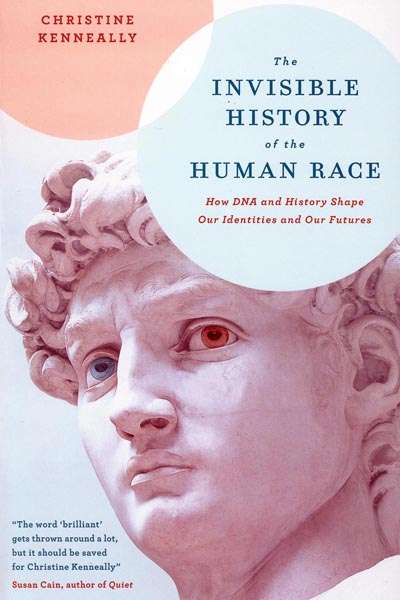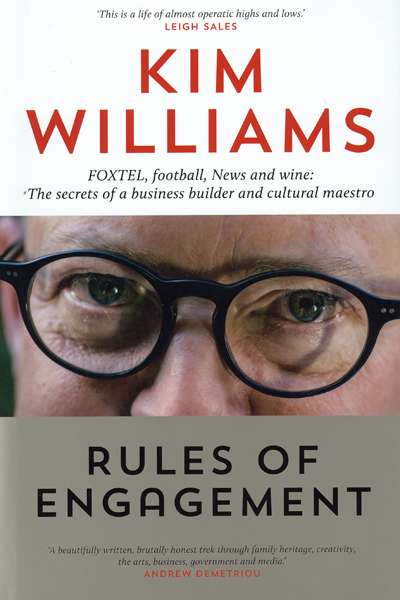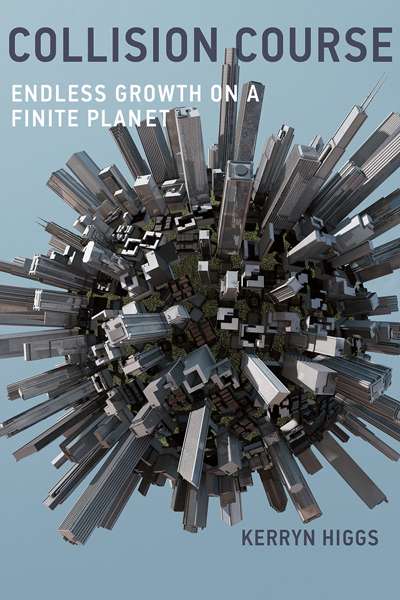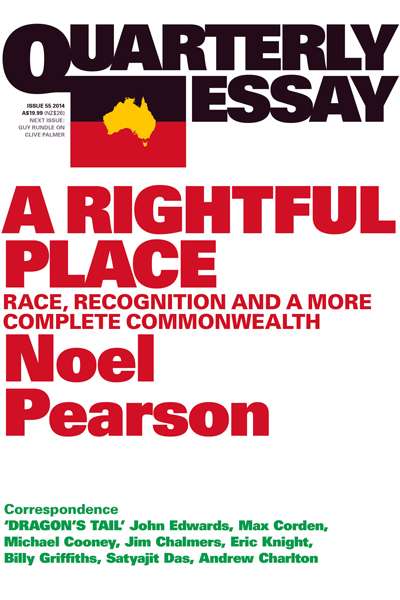Non Fiction
The Invisible History of the Human Race: How DNA and history shape our identities and our futures by Christine Kenneally
In the current fad for omnibus histories of absolutely everything, designed to replace ancient metaphysics, perhaps, or answer some marketing brainwave, no one has succeeded in quite the way Christine Kenneally has. She approaches her task with a very specific enquiry: what is the interplay between genetics and human history? Searching for an answer, she uncovers worlds within worlds.
... (read more)Inside the Hawke–Keating Government: A cabinet diary by Gareth Evans
Gough Whitlam was fond of replying to requests for interviews from historians by saying that all the answers could be found in the archives. ‘Go to the documents, comrade’, was his refrain. However, official documents rarely tell the whole story, particularly those from the modern era, whose authors are conscious that their words could so easily be exposed to public scrutiny. In particular, they are usually bereft of the innermost thoughts and motivations of the politicians and public servants. By contrast, politicians’ diaries can be goldmines. Written contemporaneously, an unguarded diary entry can transform our understanding of people and events.
... (read more)What this is not, as Kim Williams is quick to tell us (introduction, paragraph two), is a dog-bites-Murdoch account of that nasty business in August 2013 that saw Williams summarily ousted as chief executive of News Corp Australia. Other disgruntled former Ruprechtian courtiers such as former editor-in-chief of The Herald Sun Bruce Guthrie, who sought and won legal redress and indeed wrote an account of his experiences (actually called Man Bites Murdoch), have told their stories, and told them well. But this is not the path of the enigmatic and enlightened Kim. Instead, as he says, this is a book about ‘one of the most precious things in life that drives most of us … our passions’.
... (read more)What this is not, as Kim Williams is quick to tell us (introduction, paragraph two), is a dog-bites-Murdoch account of that nasty business in August 2013 that saw Williams summarily ousted as chief executive of News Corp Australia. Other disgruntled former Ruprechtian courtiers such as former editor-in-chief of The Herald Sun Bruce Guthrie, who sought and won legal redress and indeed wrote an account of his experiences (actually called Man Bites Murdoch), have told their stories, and told them well. But this is not the path of the enigmatic and enlightened Kim. Instead, as he says, this is a book about ‘one of the most precious things in life that drives most of us … our passions’.
... (read more)The Europeans in Australia: Volume 3: Nation by Alan Atkinson
On 17 January 1991, Alan Atkinson wrote to fellow historian Manning Clark to express his appreciation after reading The Puzzles of Childhood (1989) and The Quest for Grace (1990), Clark’s two volumes of autobiography. While Clark had only four months to live, Atkinson would soon begin work on The Europeans in Australia, a three-volume history of his country that would occupy him over the next twenty years. ‘I enjoyed both [the autobiographies],’ he told Clark; they ‘had a kind of subjectivity about them. It’s a remarkable style you use, which seemed to relate very much to me, so that they taught me a lot.’ Atkinson later described how he was ‘profoundly influenced’ by Clark’s work. Even more than the vast scale of Clark’s six-volume A History of Australia, it was the ‘infinite variety and open-ended stillness … of the past itself’ that affected him so intensely. Clark had shown Atkinson that the historian must ‘not just reimagine the national story but also do it in ways that ask questions about humanity itself’.
... (read more)I am a ‘Sputnik’, born in the year the Soviet satellite launched the Cold War into space. The launching by the Russians of the first artificial Earth satellite on 4 October 1957 seemed to many in the West a threatening symbol of escalating superpower rivalry. And it did unleash extreme military anxiety and triggered what became known as the Space Race. Twelve years later, in the mid-winter of 1969, I remember waking up just before midnight to watch on television as a Saturn V US rocket, wreathed in smoke and flame, inched its way off the ground at Cape Canaveral. It powered mightily against the pull of gravity and triumphed. It was beginning its journey out of Earth’s atmosphere towards the Moon.
... (read more)Collision Course: Endless growth on a finite planet by Kerryn Higgs
This clear and cogent book is an important wake-up call. It should not need saying that it is impossible for human populations and economies to grow without limit on a finite planet, but that delusion is widespread. This book is a reminder of the inconvenient truth that should be informing our leaders ...
... (read more)A Rightful Place: Race, Recognition And A More Complete Commonwealth (Quarterly Essay 55) by Noel Pearson
Whether you love or hate lawyer–activist Noel Pearson’s ideas, you have to admire his chutzpah, his willingness to put his ideas out there for public discussion and debate, even if his own dogmatism sometimes limits his diplomatic engagements ...
... (read more)There is a built-in paradox for the Greens: they need to both persuade people that we face major ecological disasters and at the same time hold out hope that we can respond meaningfully to them. To do this requires the sort of corny and touching optimism that gives Bob Brown’s book its title.
Optimism is neither a conventional memoir nor a political autobiography; it is rather a collection of sketches from the life of a man who will be remembered as one of the pivotal figures of Australian politics in the two decades that straddle the new millennium. The style is largely prosaic, excepting moments of real feeling when Brown describes the Tasmanian wilderness and his relationship to it.
... (read more)Many years ago, after working for a while in Europe, we returned to Australia via America. We picked up a car in Atlanta and drove through sprawling cities, alarming slums, and abandoned downtowns. Across Mississippi and the broad, reassuring openness of Texas, to Arizona and the Grand Canyon, we passed through the alien electrics of Las Vegas, down into Death Valley, and up over the Sierra Nevada to the west coast and San Francisco.
... (read more)







